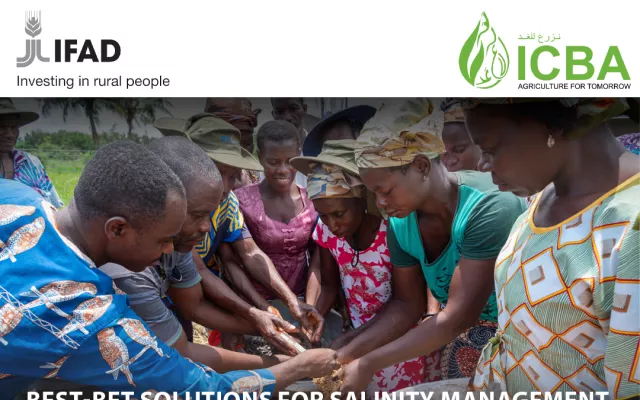ICBA kicks off cooking program to promote halophytic crops
25 January 2021
The International Center for Biosaline Agriculture (ICBA) has launched a new program to raise public awareness about the benefits of cooking healthy dishes using halophytic (salt-loving) crops.
Dubbed the Halophytic Kitchen Lab, the program is the first of its kind in the UAE as it aims to promote use of locally grown halophytic crops for food. It is run under a project funded through the Expo 2020 Dubai’s Expo Live Innovation Impact Grant Program.
The Halophytic Kitchen Lab seeks to encourage both young people and adults to learn more about the health and other benefits of consuming foods based on nutritious halophytic crops which are cultivated with saline water in desert conditions. Participants are introduced to the art of cooking and devising healthy recipes of dishes with halophytic crops under the guidance of a professional chef.
The program also includes such activities as lectures on challenges to food security and the importance of halophyte-based food products, as well as tours of ICBA’s research stations.
Halophytes have great potential as alternative crops for food production in semi-arid and arid regions such as the Middle East and North Africa where farming faces constraints ranging from soil and water salinity to water scarcity.
However, a number of challenges should be addressed before such crops become widely produced and used. They include, among others, lack of value chains and low or non-existent consumer awareness and demand.
For this reason, ICBA has been focusing more and more efforts on developing value chains for Salicornia and quinoa in different countries, including Egypt, Morocco, and the UAE.
For example, under a project titled “From desert farm to fork: value chain development for innovative halophyte-based food products”, ICBA is helping farmers in the emirate of Abu Dhabi to grow Salicornia and fish using reject brine from desalination units.
Led by ICBA, the project is implemented in collaboration with the Abu Dhabi Agriculture and Food Safety Authority (ADAFSA); the Environment Agency – Abu Dhabi (EAD); the Khalifa Fund for Enterprise Development (KFED); the Global Food Industries LLC; and the Max Planck Institute, Germany.
As part of the project, Salicornia and fish have been introduced so far on eight farms in the UAE using intermediate upscaling methodologies and adopting the integrated agri-aquaculture systems (IAAS) approach. What is more, several innovative Salicornia-based food products have been developed and marketed by the Global Food Industries LLC.
With the launch of the Halophytic Kitchen Lab, ICBA aims to support the development of value chains for halophytic crops, informing consumers and thus facilitating demand for halophytic products.
The Halophytic Kitchen Lab was kicked off during the Sustainability Winter Camp for students, which was recently organized by the Emirates Soil Museum under the ICBA Youth Engagement Society (ICBA YES) initiative in collaboration with Eedama.











